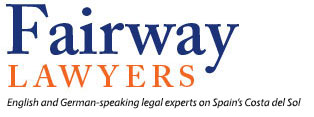QUESTION
Last August we bought a beautiful apartment in Marbella. The sale was executed in a private document and we were able to settle in during the course of the sale. A few months later, when we tried to execute our contract in a public deed, we discovered to our horror that since September the apartment was registered in the name of Mr and Mrs Gómez in the Property Register.
It is obvious that I bought the apartment first but against whom should I take legal action? Can I recover the apartment? And what about the money I paid?
ANSWER
Spanish law on real property is based on the Principle of Legal Security which displays its effectiveness mainly through the advertising allowed by the Property Registry.
Therefore, although your acquisition was valid since there was a combination of Title (the sales contract) and Manner (the actual delivery of the ownership) the purchase by Mr and Mrs Gómez prevails. The reason for this is that under the provisions of Article 1473 of the Spanish Civil Code and Articles 32 and 34 of the Mortgage Act, once their right is registered they have the capacity of Third Party Mortgage Holders since they acquired the property, in a public deed for valuable consideration in good faith, from the person who figured in the Property Register as owner.
Your only option would be to claim a refund of the price paid to the vendor with the relevant indemnity.
Likewise, if it is proven that the double sale was made with the aim of defraud, which seems obvious in the light of the circumstances surrounding this specific case, criminal action could be instigated against the vendor for fraud.
Our advice for future transactions is that whenever you intend to acquire property, first of all you check the registered ownership of the vendor over the property by filing the relevant notarial request for information concerning registration on the basis of Royal Decree 2537/1994 of 29 December 1994 and that you execute the sales contract in a public deed within ten days thereof and enter the purchase in the Property Register. By complying with these simple formalities you will be protected in your acquisition and you will not suffer any unpleasant surprises which could jeopardise your purchase.
We also recommend that you check that there are no unregistered charges and encumbrances which could fall on the property, especially any debts incurred by the owner with the Ownersí Association and outstanding tax on property and municipal solid waste.
Lastly, our final advice is that before you proceed with the acquisition of any property, you seek specialised legal and tax advice which could help you avoid any type of contingency in the purchase operation.

